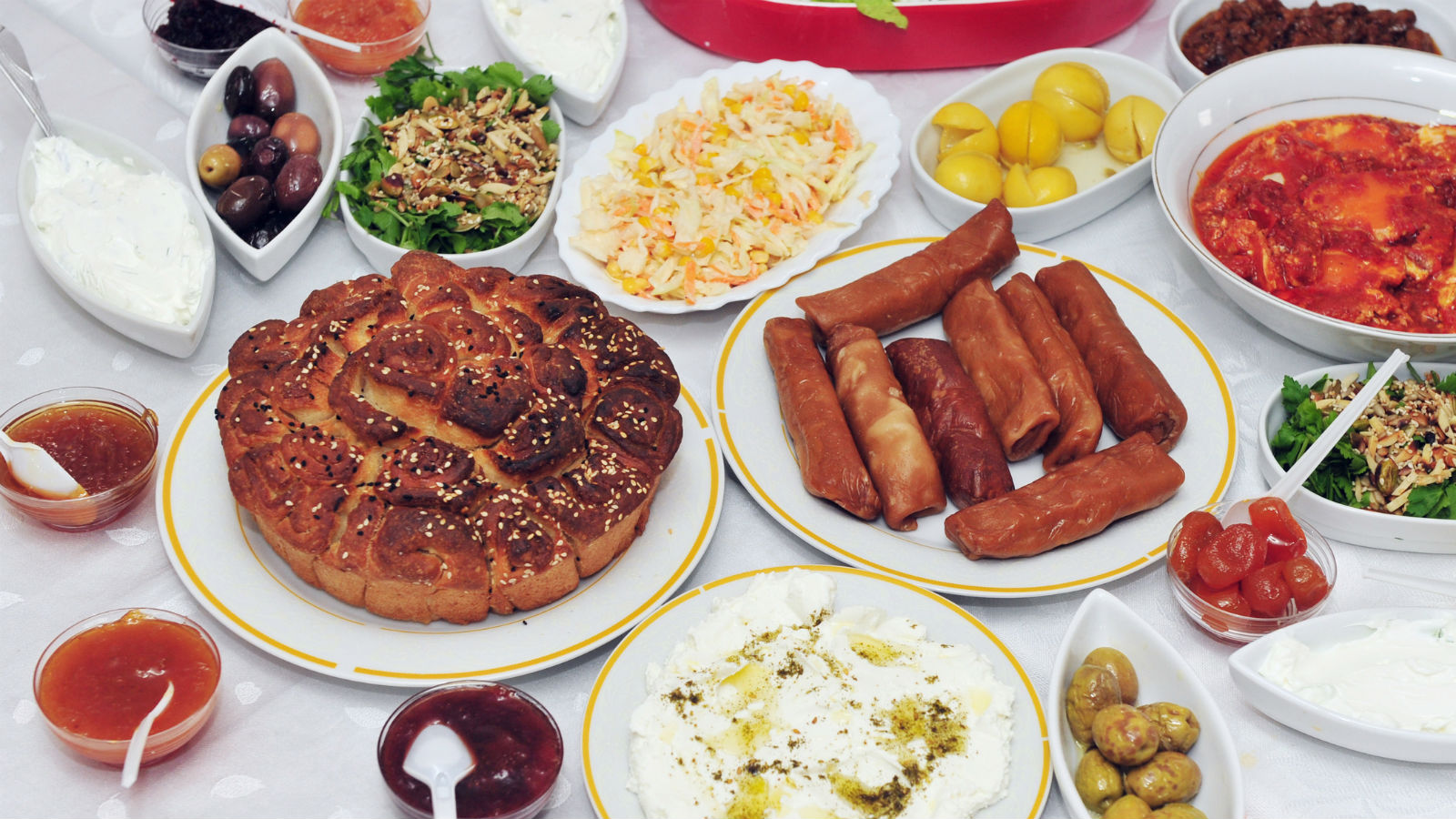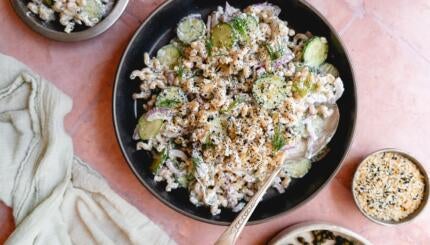Drive down any main highway in Israel on a Saturday, and you’re bound to run into a makeshift jachnun stand on the side of the road. The best-known food of the Yemenite Jewish community has now become a part of mainstream Israeli cuisine, along with a whole host of other Yemenite dishes, and for good reason. Buttery, doughy, rich, and slow-cooked, Yemenite cuisine get its kick from spicy and herbaceous condiments, and spice blends that aren’t afraid to go bold or go home. Perfect for warming up mid-winter, or sweating it out in the summer heat, these are nine Yemenite foods you’ve got to try ASAP.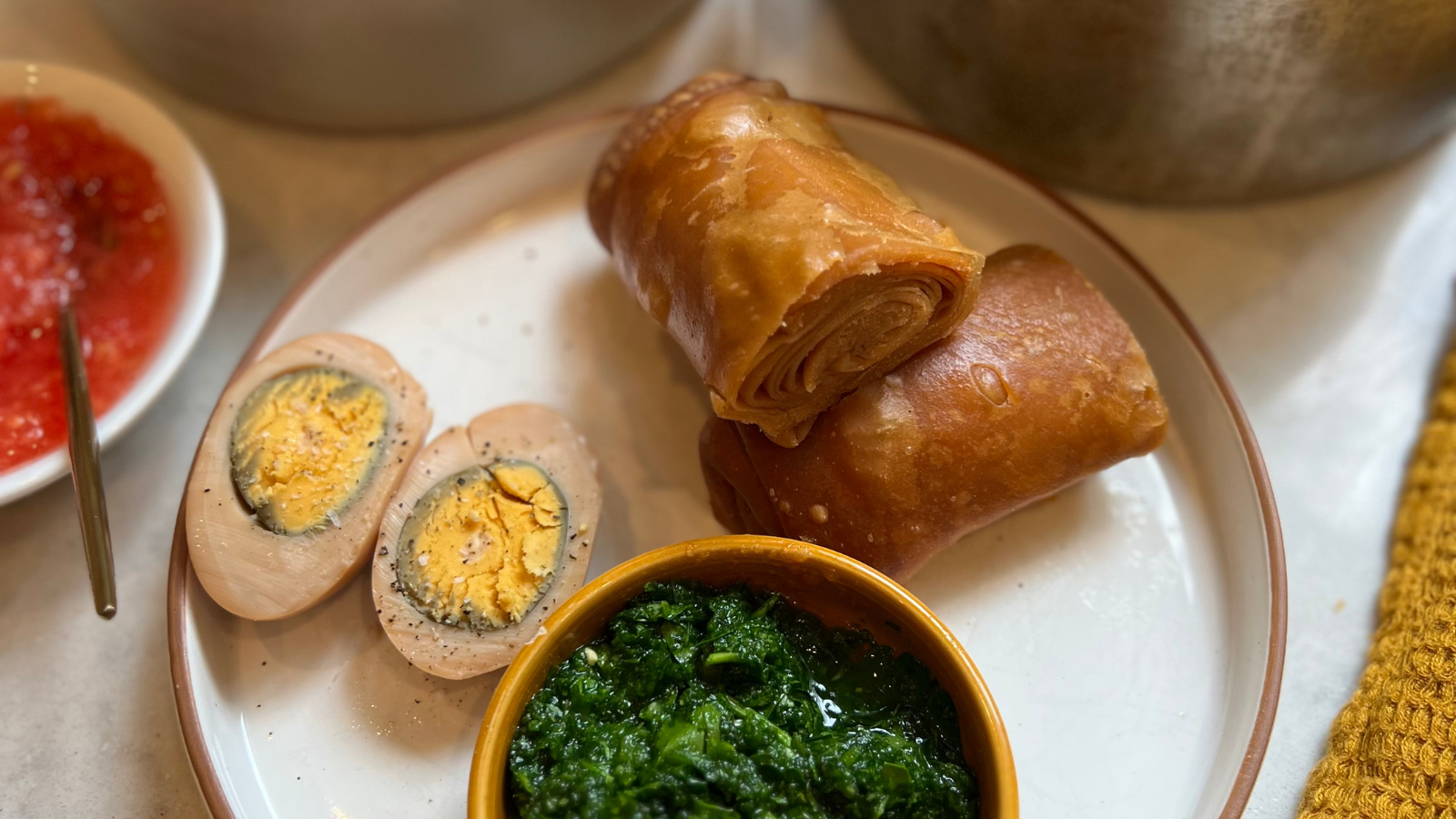
Jachnun
The king of Yemenite foods in Israel, jachun is a Saturday morning slow-cooked brunch food, made from homemade pastry dough layered with clarified butter (ghee), rolled up into a jelly roll shape, and then cooked stacked up in a slow cooker overnight. The resulting golden brown logs are dense and lightly sweet pastries, that will fill you up until well into the afternoon. Traditionally served with a slow-cooked hard-boiled egg, freshly grated tomato and hot sauce (zhug), jachnun is just as good when enjoyed with a drizzle of honey or the jam of your choice. Get a recipe for jachnun here.
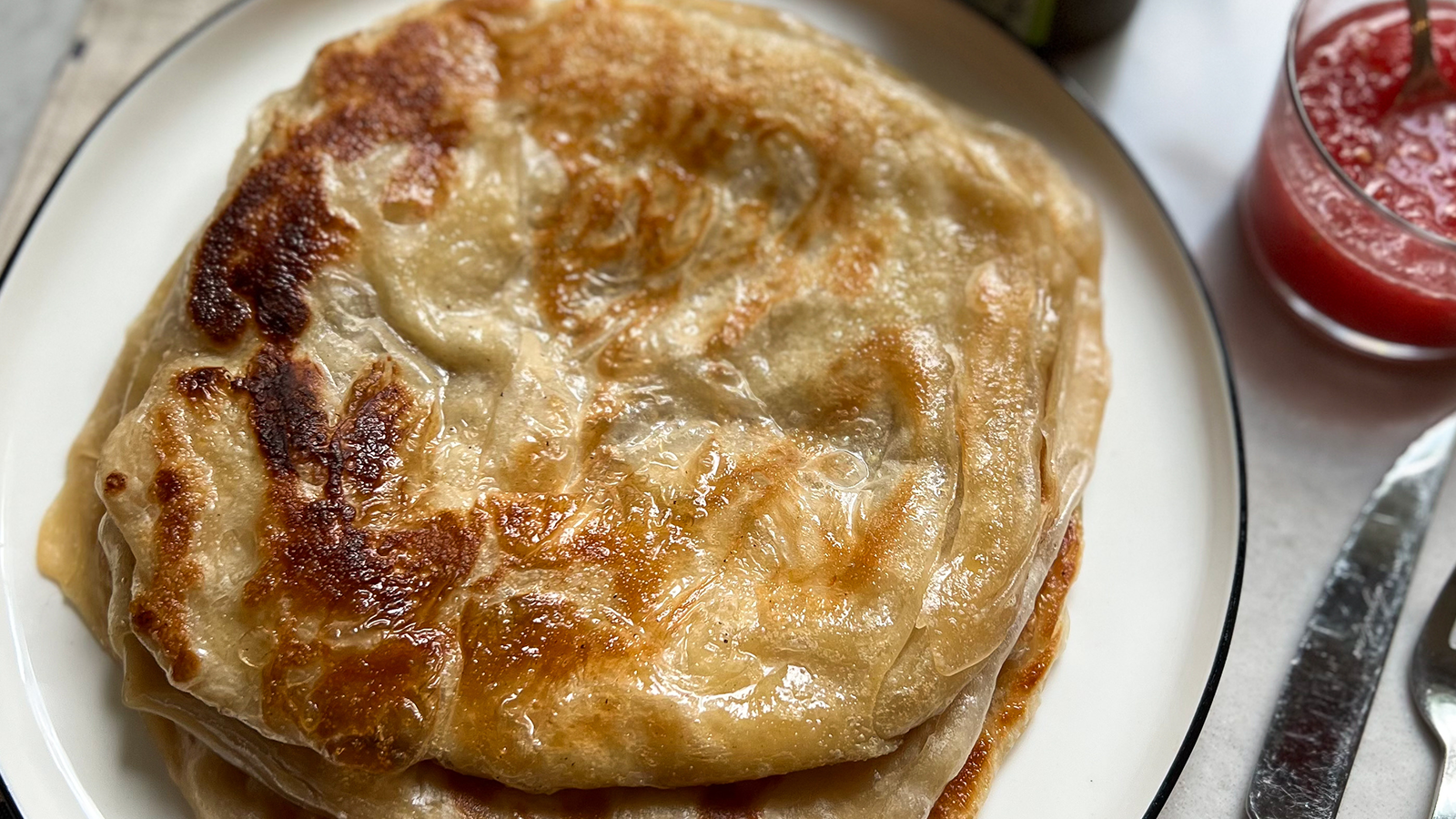
Malawach
The puffed up round version of its cousin, jachnun, malawach is as Israeli as falafel, and a favorite with children. Once formed, this slightly sweet flaky flatbread takes only a minute or two in a hot frying pan to show off its puffy layers of dough and clarified butter. And this puff pastry with a Middle Eastern twist is as versatile as they come. Malawach can be stuffed and eaten as a sandwich, or enjoyed on its own, smothered in spicy zhug, freshly grated tomato and oh-so-Israeli cottage cheese. And did we mention malawach pizza is a thing too? Resourceful home cooks use malawach as a recipe base, and Israeli celebrity chef Karin Goren even uses the frozen version available in Israeli supermarkets to make apple strudel, yum, yum and yum. Get the recipe for malawach here.
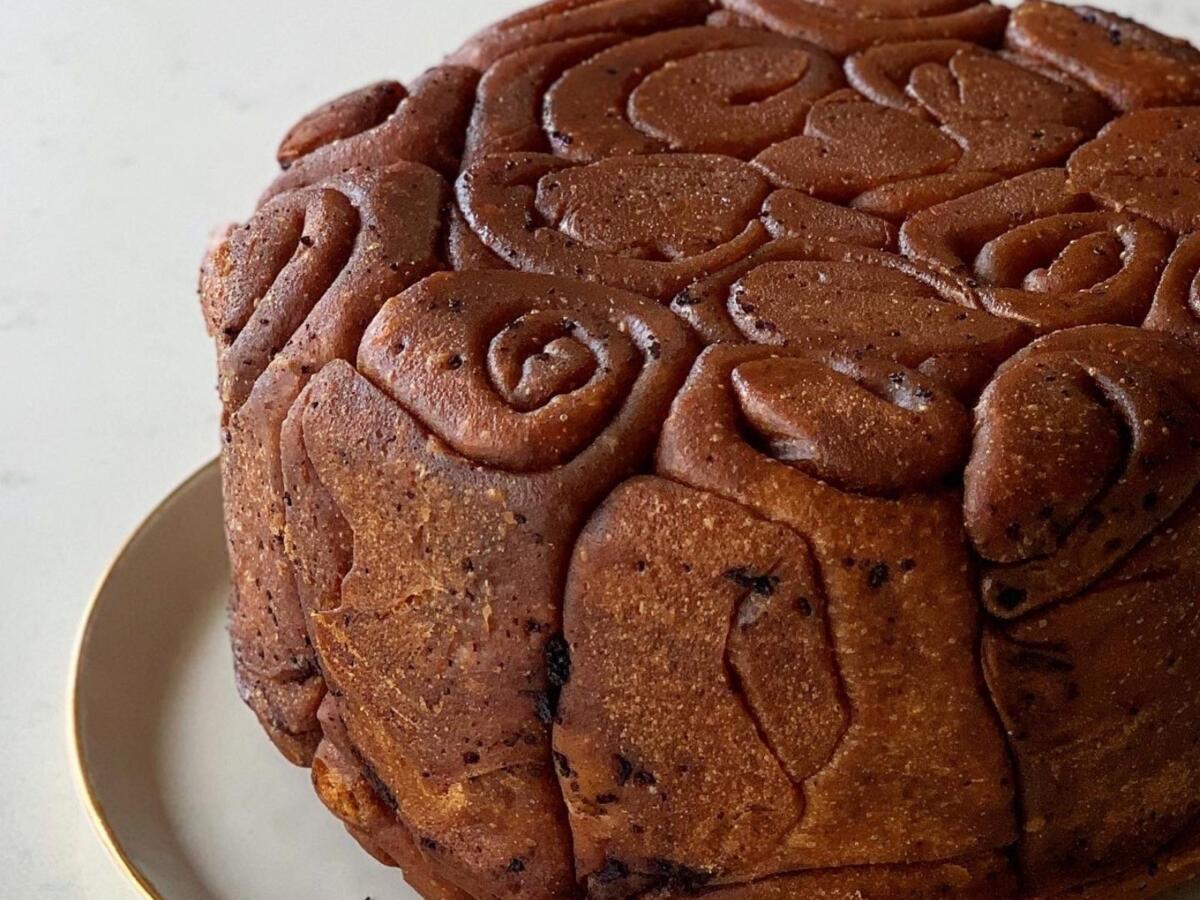
Kubaneh
Who needs challah when you have kubaneh? This bread, which like jachnun, is cooked overnight in a pot and enjoyed as a Saturday breakfast treat, is like a slow baked Yemenite brioche. The bread is rolled up into rose-shaped rolls and made into a pull-apart loaf, which not only makes it fun to eat, but easy to share with friends and family. A true centerpiece bread, kubaneh, is also eaten alongside anything from stewed eggs, which are often cooked on top of the bread in the same vessel, to fresh grated tomato, zhug, and any other salads and dips you desire on your breakfast table. Get a recipe for kubaneh here.
The Nosher celebrates the traditions and recipes that have brought Jews together for centuries. Donate today to keep The Nosher's stories and recipes accessible to all.
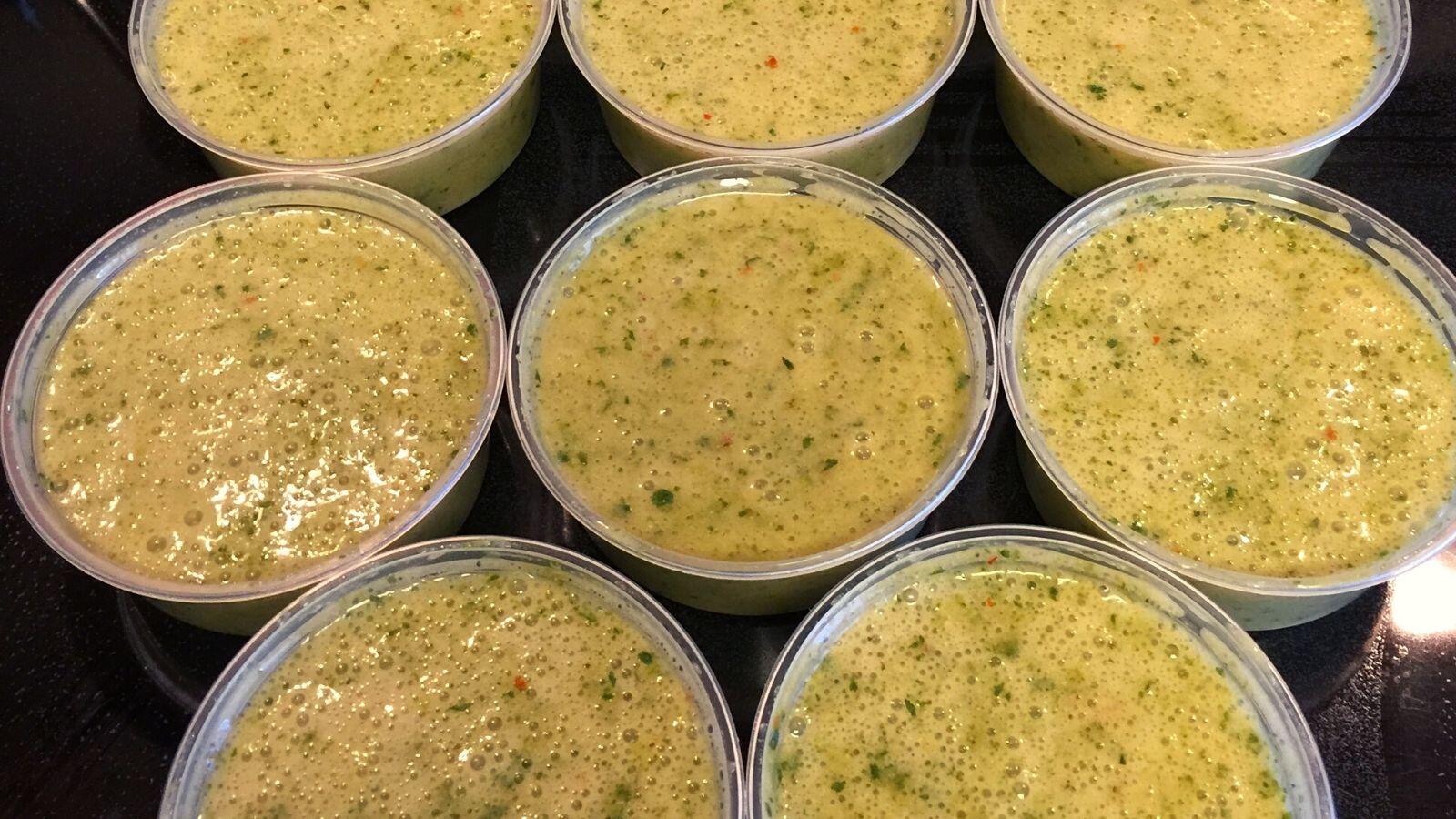
Fenugreek Sauce (Hilbeh)
A sauce that people either love to love or love to hate, hilbeh carries the distinctive taste of sweet and slightly bitter fenugreek. Made from soaking the ground spice in water for many hours, then blending it up smooth with garlic, lemon and fresh cilantro, this whipped raw sauce is a welcome addition to soups, as a condiment, or simply sopped up with bread. And did we mention that it’s a super food too? Fenugreek is known to boost milk supply in nursing mothers, aid digestion and lower cholesterol, among a myriad of other health benefits. Get a recipe for hilbeh here.
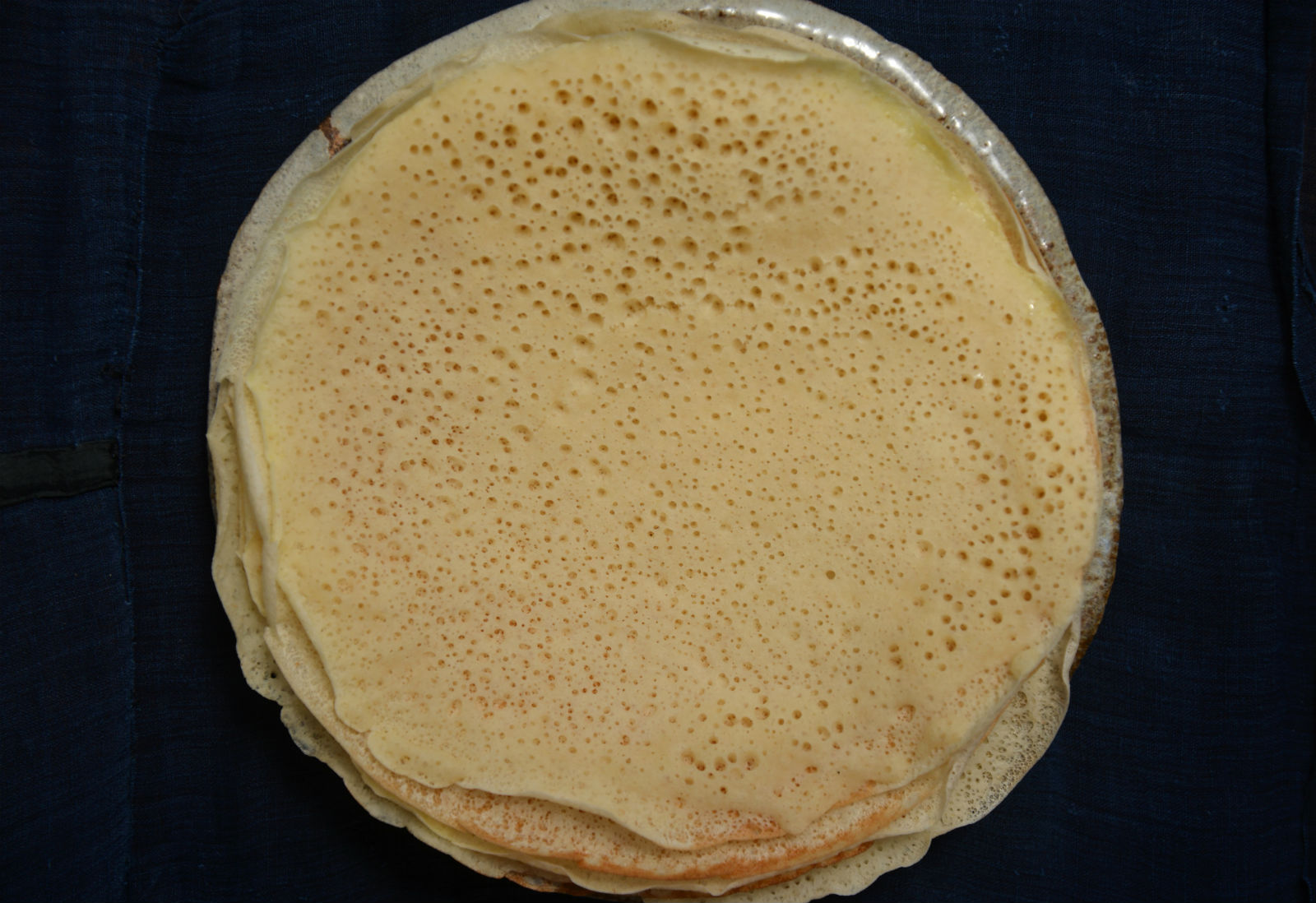
Lachoh
An everyday flatbread for Yemenite Jews, lachoh is like a big savory pancake that is cooked on one side, producing a soft and spongy round bread. Similar to the Ethiopian bread, injera, lachoh is traditionally cooked up in giant frying pans and is eaten alongside salads, spreads, soups. It can even be used as a sandwich wrap. Get a recipe for lachoch here.
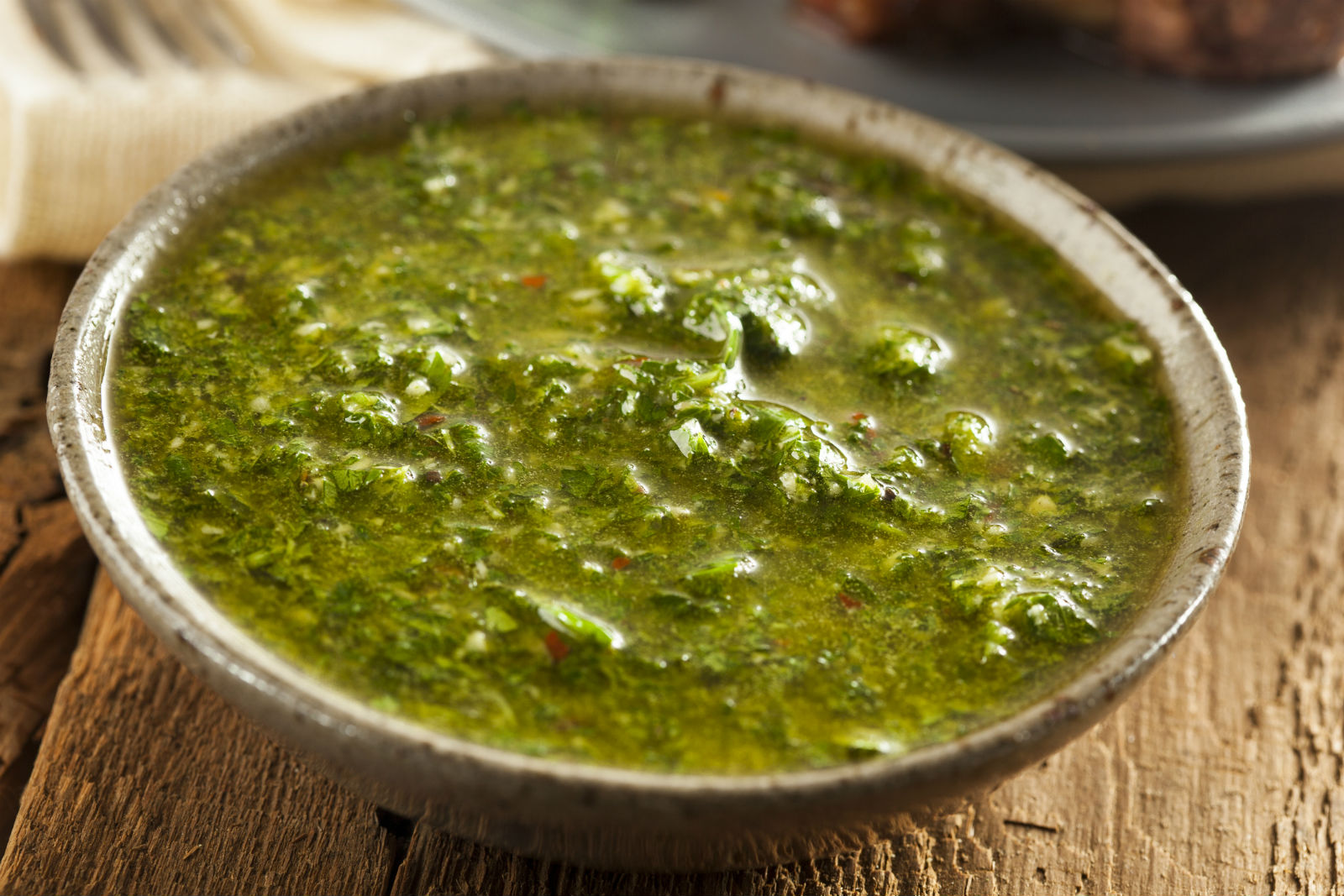
Zhug
A staple condiment at any Yemenite table, and now showing its face everywhere from falafel stands to Israeli hummus joints, this spicy herbaceous hot sauce comes in both red and green varieties, depending on which chili peppers you use. Traditionally ground between two stones, the fiery hot chimichurri-like sauce has a base of hot peppers, fresh cilantro and parsley, lemon, and garlic, and is spiced with caraway, cumin and cardamom. Eat it alongside any dish to awaken your palate and make your eyes water. Get a recipe for zhug here.
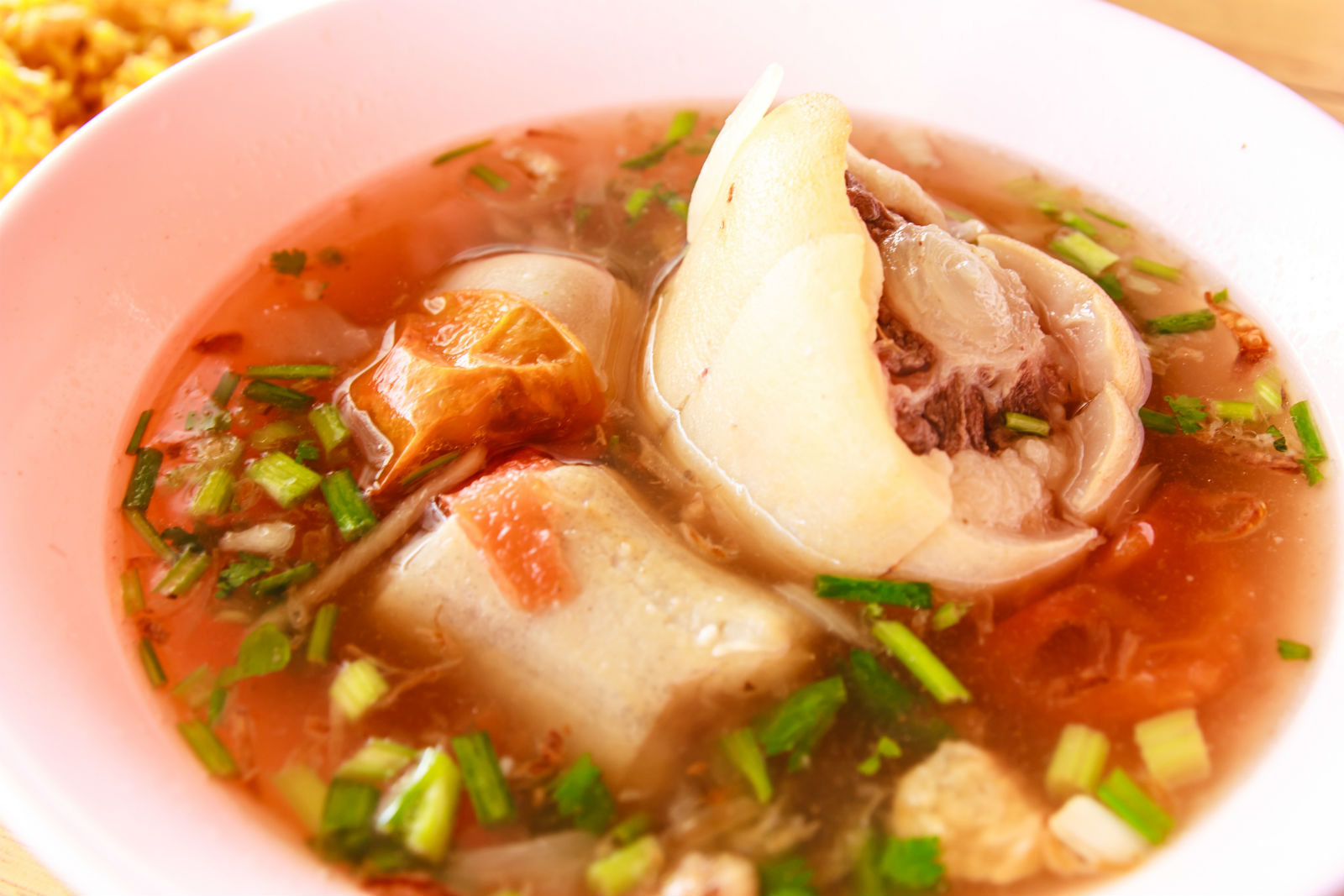
Oxtail Soup
Wondering what soup would be best to eat all of this delicious Yemenite bread with? Wonder no longer: Oxtail soup is the chicken soup of the Yemenite Jewish grandmother world. The slow-cooked tender oxtail meat, and broth infused with marrow bone and warming spices, will soothe your soul, and have you up and running in no time. Slurp it up with a dollop of fenugreek sauce to add a nutritious super-food punch, while you’re at it. Get a recipe for oxtail soup here.
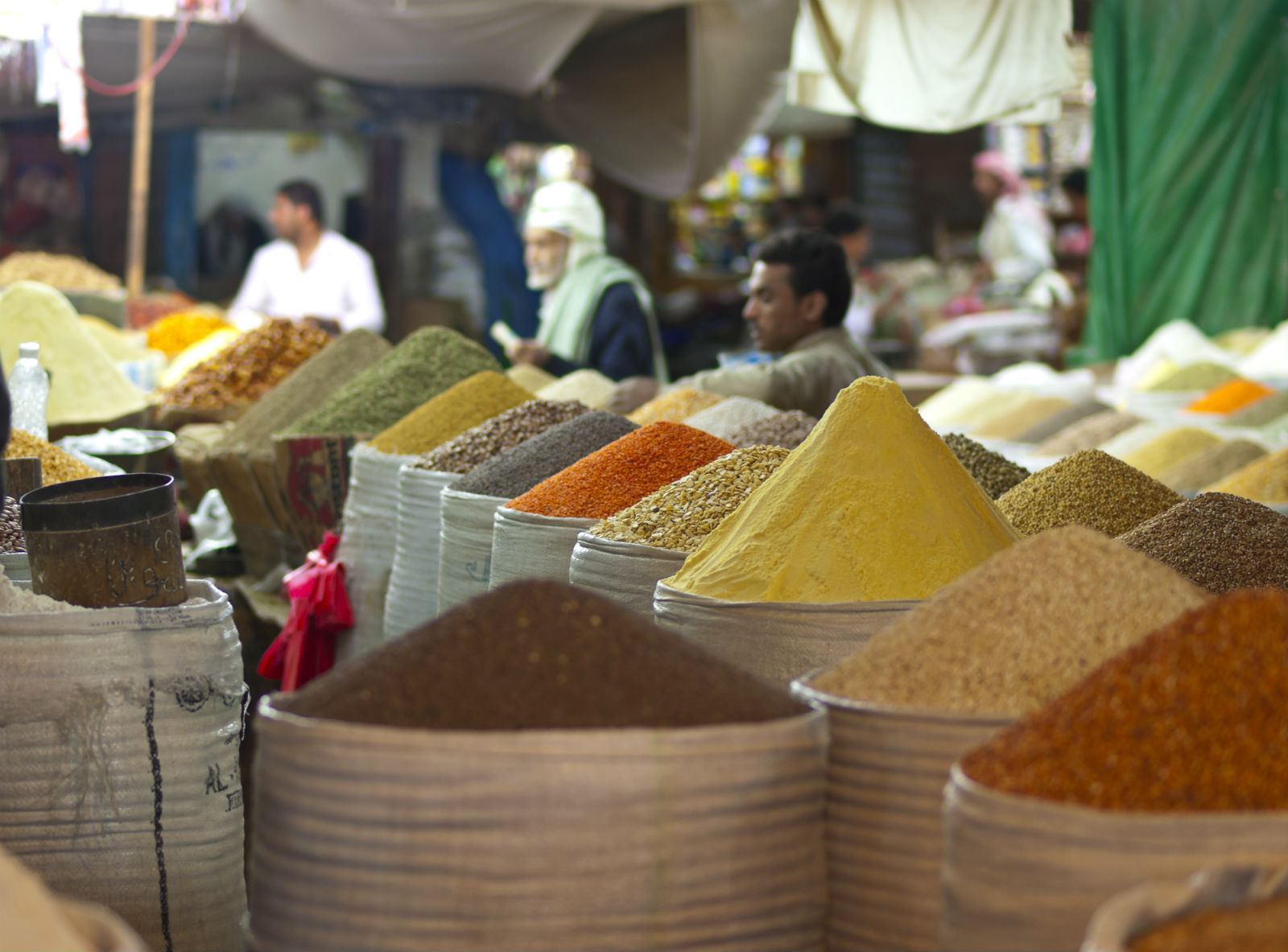
Hawaij (Spice Mix)
A term that simply means “spice mix,” hawaij comes in two forms: one for coffee and one for soup. Consisting of ground spicy ginger, lemony cardamom, sweet cinnamon, and warm and spicy cloves, hawaij for coffee will remind you of an Arabic chai spice mix; while the hawaij meant to flavor soups and stews typically contains the sharp flavors of ground peppercorns and cloves, earthy cumin, light and mellow coriander and cardamom, and a good hit of turmeric, which lends the mixture its deep yellow hue. Mix up your own to make spicing your Middle Eastern dishes a snap, or buy it already mixed from a Middle Eastern market or online. Get a recipe for soup hawaij here or coffee hawaij here.
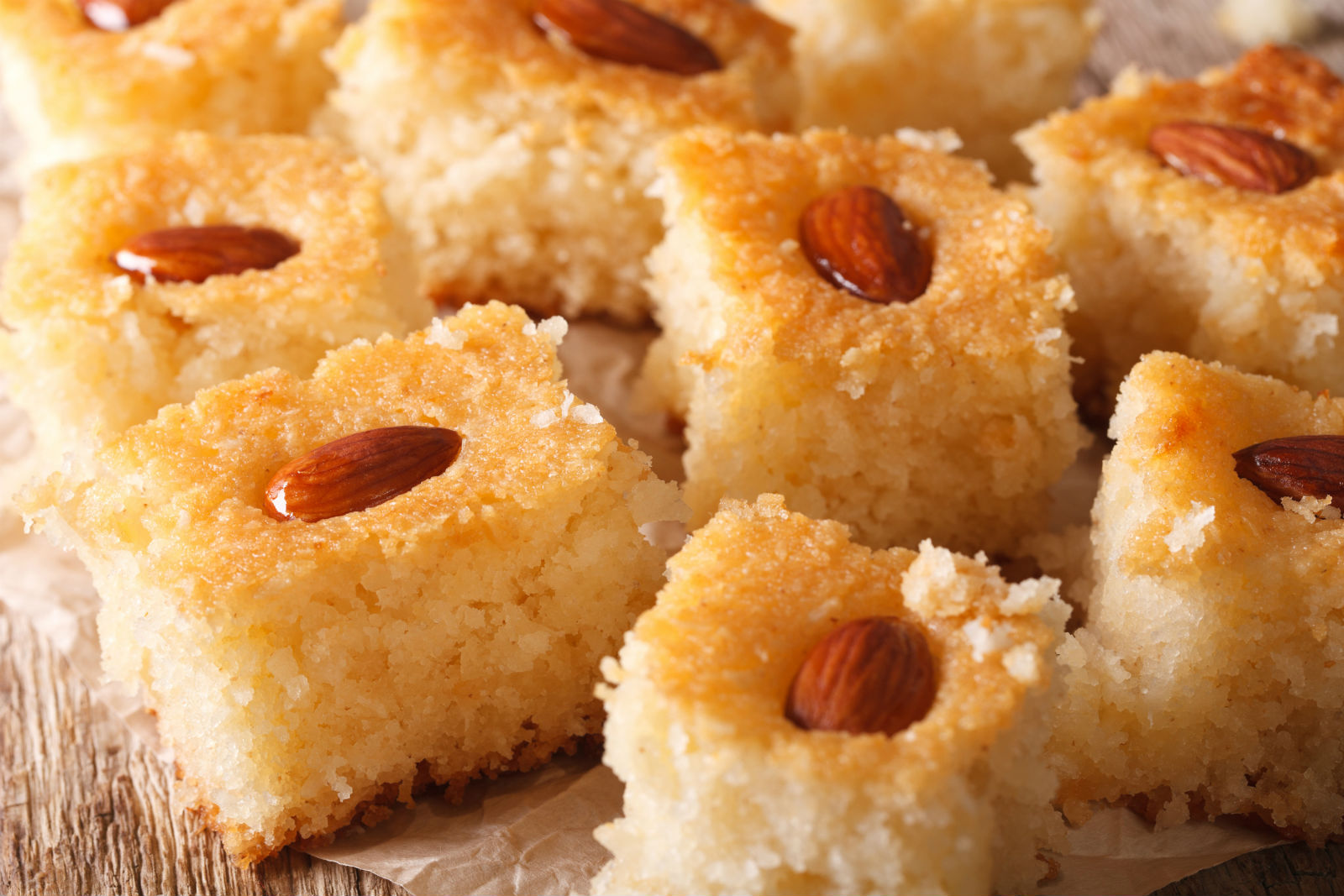
Basbusa Cake
Found in Middle Eastern homes and bakeries across many cultures, including that of Yemenite Jews, basbusa is a semolina flour cake that is soaked in perfumed syrup, and eats like a confection. Luckily for busy cooks, the inundation of syrup preserves the cake and keeps it fresh for several days on end, while adding beautiful floral notes of rose or orange blossom. The cornbread-like texture of the semolina lends an interesting texture, and makes this exotic cake feel strangely familiar. Get a recipe for basbusa cake here.
